Latest in Lifestyle Redesign®
January 2025
New Year, New Mindset
As the new year begins, it is a perfect time to reflect on how our lifestyles support alignment with our values. The start of the year often inspires us to reimagine goals, refine priorities, or maybe even re-engage in habits we had set aside.
This month’s Latest in Lifestyle Redesign newsletter highlights the art of creating sustainable habits and routines that empower growth and fulfillment, from bite-sized practices to transformative mindsets.
Cheers to a year of growth, possibility, and positive change!
LR IRL — Lifestyle Redesign in Real Life
Small Shifts, Big Changes
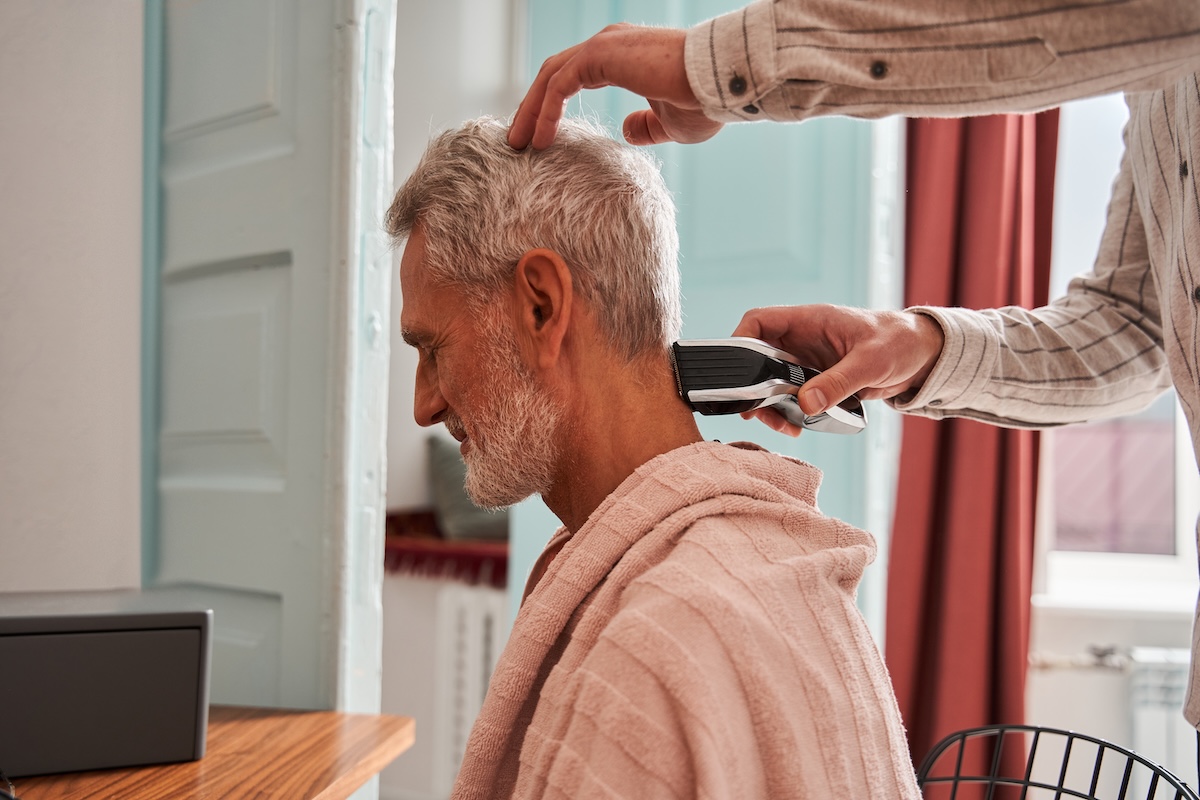
After his father’s passing and mother’s sudden aneurysm, James’ plans for retirement shifted from rediscovering his interests to being a full-time caregiver*. Within a short span of time, his primary care provider began to notice changes in James’ overall health- most notably a decline in physical activity, lack of self-care, and high stress (later identified as complex grief)- and initiated a referral to Lifestyle Redesign services at the USC Occupational Therapy Faculty Practice. When he first met his new OT, Dr. Marilyn Thompson, James felt unsure of how she could support him when he felt he was already doing everything he could for his mother and did not see a need for additional help.
During their first session together, Marilyn gently challenged James to consider how his caregiving role was impacting his own health and well-being. “How are you taking care of yourself?” she asked, to which James admitted his own needs had “taken a back seat” and it was becoming evident in his health. This was the first time since retiring that James had taken a moment to consider the ripple-effects of his full-time role as a caregiver on his own wellbeing. Together, James and Marilyn identified small, yet intentional, ways he could begin caring for himself again, taking advantage of the opportunities when he had respite care for his mother. James shared that he was overdue for a haircut, as it had been several months since he engaged in what was once a meaningful grooming activity, and, with Marilyn’s support, began scheduling in self-care during the windows of time his mother was receiving home health care. Building this new habit of self-care required practice and repetition; by taking the time to educate James about the habit loop, Marilyn supported his understanding of how starting small can lead to rewarding shifts that benefitted his well-being. During their third session together, James proudly, yet humbly, flaunted his new haircut; this small victory energized him and set the foundation for the rest of his time with Marilyn.
Motivated by the power of small changes, James was open to exploring strategies for increasing his physical activity. Prior to retirement James enjoyed going to the gym on a regular basis and relied on this as his primary form of movement, however, since retiring and taking on a caregiving role, he felt he no longer had the time to maintain this activity as part of his weekly routine. Marilyn expanded on her message of starting small and encouraged James to break down his goal of attending the gym multiple times a week into smaller, achievable steps. Together, they created a plan for James to gradually and realistically increase his physical activity engagement, starting with 5 minutes of yoga as many times a week as James could squeeze in. Within a few weeks, not only did he increase the amount of time he was doing yoga, but, once he realized he was still paying for a membership, James actually began to go to the gym, starting with once a week. For a few weeks, this was sufficient, though James was eager to increase his gym attendance, especially in the mornings when his mother required less assistance. To support this next step towards his goal, Marilyn guided James in exploring how he can reward himself for going to the gym in the mornings; this is when she learned that James enjoyed having a cup of coffee first thing in the morning and made the suggestion of making coffee his reward. James was open to the idea and agreed to try going to the gym first thing in the morning and treating himself to coffee afterwards, as a means of building a new habit loop into his morning routine. Within his first week of trialing this strategy, James found himself at the gym three times and remained consistent with this new, flexible routine in the weeks to come.
As their rapport strengthened and Marilyn empowered James to prioritize his own needs, he would share that he felt like he was being selfish for taking time for himself, even though his mother was receiving home health support multiple days per week. Marilyn used these opportunities to validate James and support him in reframing these guilty thoughts. Using cognitive reframing strategies, Marilyn guided James through recognizing how the benefits of investing in his own well-being were positively impacting his roles as caregiver and son. By prioritizing himself alongside his roles, James felt he had more patience and energy for his mother than he did at the start of his time in OT, which positively impacted their relationship. James came to accept that the time he intentionally spent on himself was also benefiting his mother’s quality of life.
During their final session together, James beamed with pride when reflecting on how impactful the small changes he made over the last few months had a major influence on his health and mindset. He had developed a new routine that allowed him to be an attentive caregiver who cares for himself simultaneously; for the first time in months, James felt like he was getting his life back. James is a great example of how building habits, anchoring them to existing routines, and rewarding ourselves for the effort, can create sustainable change.
In reflecting on her time with James, Marilyn shared:
“The one thing I would want clinicians, future clients, or any human to know, is that tiny gains do matter and accumulate over time. If we continue to invest in those tiny gains for ourselves then we’ll get a return on our investment.”
*Although “care partner” is the preferred term for health professionals to use to describe this role, we use the term “caregiver” as this was James’s preferred term to describe his role in providing direct care to his mother.
Research Spotlight
Habit Formation in Wearable Activity Tracker Use Among Older Adults: Qualitative Study (2021)
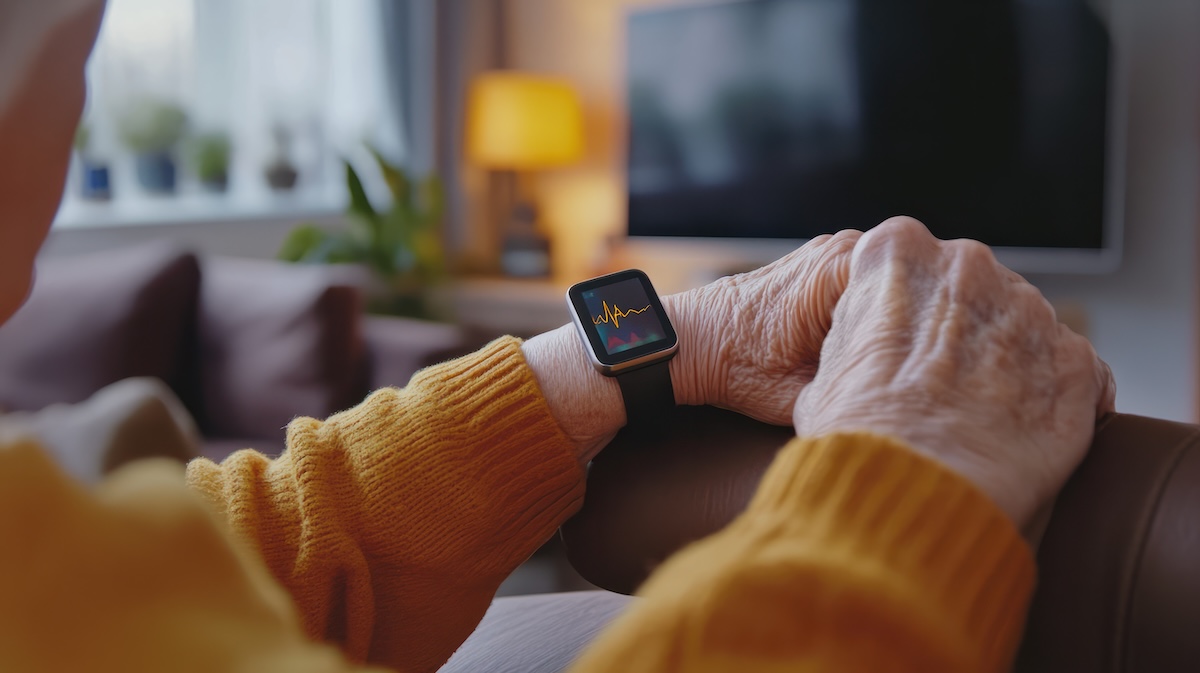
Access to health-related devices has grown alongside technology advancements, granting the general public the ability to track various aspects of lifestyle and health, particularly physical activity, thus increasing awareness of an individual’s own activity patterns and general health status. However, much of the research that currently exists on this topic focuses on why people discontinue use of said devices, as opposed to the strategies used to maintain their usage. In a qualitative study, published in the Journal of Medical Internet Research, researchers led by Dr. Wei Peng explored why individuals, specifically, older adults, continue to use wearable activity trackers and the strategies used to do so. The study involved 20 participants aged 65 years or older who had used wearable activity trackers for over six months. Through in-depth interviews, the researchers aimed to understand the experiences and strategies employed by these long-term users to support continued use. The thematic analysis of the data revealed eight themes related to habit formation, including a meaningful initial start, realistic goal setting, use of contextual cues, action planning, and coping planning.
Long-term users typically started with small behavioral change goals and gradually modified the goals to meet their performance capacities. They used consistent cues (time and location) to build a routine around using their wearable devices, along with use of creative cues and reminders to support action planning. Additionally, long-term device users were found to engage in coping planning to deal with anticipated problems and maintain an adaptive mindset when experiencing unfulfillment and lapses in device use. The study’s results suggest that habit formation strategies can support older adults not only in creating a new habit of wearing their activity trackers, but also in implementing further behavior change that can positively impact their overall health.
Habit formation following routine-based versus time-based cue planning: A randomized controlled trial (2021)

With the growing understanding that lifestyle modifications are among few modifiable factors impacting the prevalence of chronic conditions, habit formation is arguably a salient ingredient to developing healthier habits and routines. In this comprehensive study published in the British Journal of Health Psychology, researchers conducted a longitudinal two-condition randomized controlled trial to investigate the effectiveness of routine-based versus time-based cue planning in habit formation in relation to everyday nutrition behavior. The study involved 192 adults aged 18-77 years who were randomly assigned to either a routine-based cue group or a time-based cue group. Participants selected an everyday nutrition behavior and linked it to either a daily routine (e.g., “after breakfast”) or a specific time (e.g., “at 8 AM”). Over the course of 84 days, participants responded to daily questionnaires assessing “plan enactment” (the repetition of the desired behavior when encountering the planned cue) and the behavior’s “automaticity” (the ability to perform a task without conscious effort), which collectively served as an indicator of habit formation.
The results showed that both routine-based and time-based cue planning led to increases in automaticity and plan enactment, with no significant differences between the two groups in terms of habit formation, which, the authors inferred, could be a result of participants unknowingly using both strategies simultaneously (e.g., choosing a time of day in which a specific routine typically occurs). The study concluded that linking a behavior to a daily routine or a specific time was similarly effective for habit formation since repeated plan enactment was identified as a key predictor for automaticity. These findings emphasize that habit formation strategies can lead to “different and individual-specific trajectories of automaticity change”, suggesting that lifestyle changes are most successful when utilizing an individualized approach to creating new habits.
Upcoming Opportunities
Applying Lifestyle Redesign® on College Campuses
Free Webinar | Tuesday, February 25, 2025
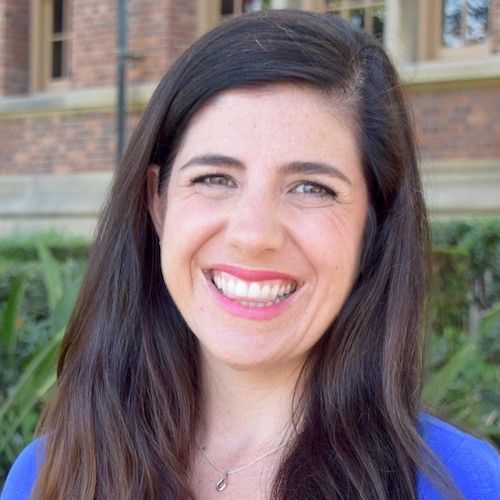
Dr. Tracy Jalaba
Join this webinar to learn about application of the Lifestyle Redesign intervention framework to a college student population and understand the critical role that occupational therapy can play in supporting clients through this significant time of transition. Attendees will gain a greater understanding of the impact of lifestyle considerations within this phase of life and learn evidence-based intervention approaches that can create a powerful starting point for providing holistic care.
Date: Tuesday, February 25, 2025
Time: 12–1pm Pacific Time
Location: Zoom
Audience: This is an introductory level activity designed for OT practitioners, however, all levels of experience and disciplines are welcome.
Cost: This webinar is offered at no cost. Registration is required.
CEUs: 1 contact hour (0.1 CEU)
About the Speaker: Dr. Tracy Jalaba
OT Faculty Practice Mental Health Fellowship: Pathway for Lifestyle Redesign Certification

The USC Occupational Therapy Faculty Practice (OTFP) offers a fellowship program to provide Lifestyle Redesign training opportunities to licensed occupational therapy practitioners. The purpose of the USC OTFP Fellowship program is to foster the development of expertise in administering the Lifestyle Redesign intervention to individuals living with chronic physical and mental health conditions.
The fellowship curriculum will include more than 1,400 hours of didactic and clinical education, mentored service delivery and non-mentored service delivery and will cover topics including pathophysiology of chronic conditions, occupation-based and evidence-based practice guidelines, safety regulation and ethical practice guidelines, interpersonal skills, and professional engagement. Fellows will be paired with a faculty clinician and will engage in training, structured mentoring sessions and scholarly activities to enhance their clinical practice and leadership skills. Throughout the experience, fellows will work on interprofessional teams, engage in public speaking, and participate in community engagement activities. The fellowship will expedite the process of meeting requirements for Lifestyle Redesign certification, as fellows will complete the didactic content and clinical hours needed to apply.
Applications will open in February 2025 with a start date of Summer 2025. For additional information, please contact the Fellowship Coordinator, Lindsey Shomer, at lindsey.shomer@med.usc.edu.
The fellowship program is currently in candidacy status with the American Occupational Therapy Association. See additional information about the OT Faculty Practice and current programs.
Call for Papers - Canadian Journal of Occupational Therapy
Submission deadline extended to April 1, 2025
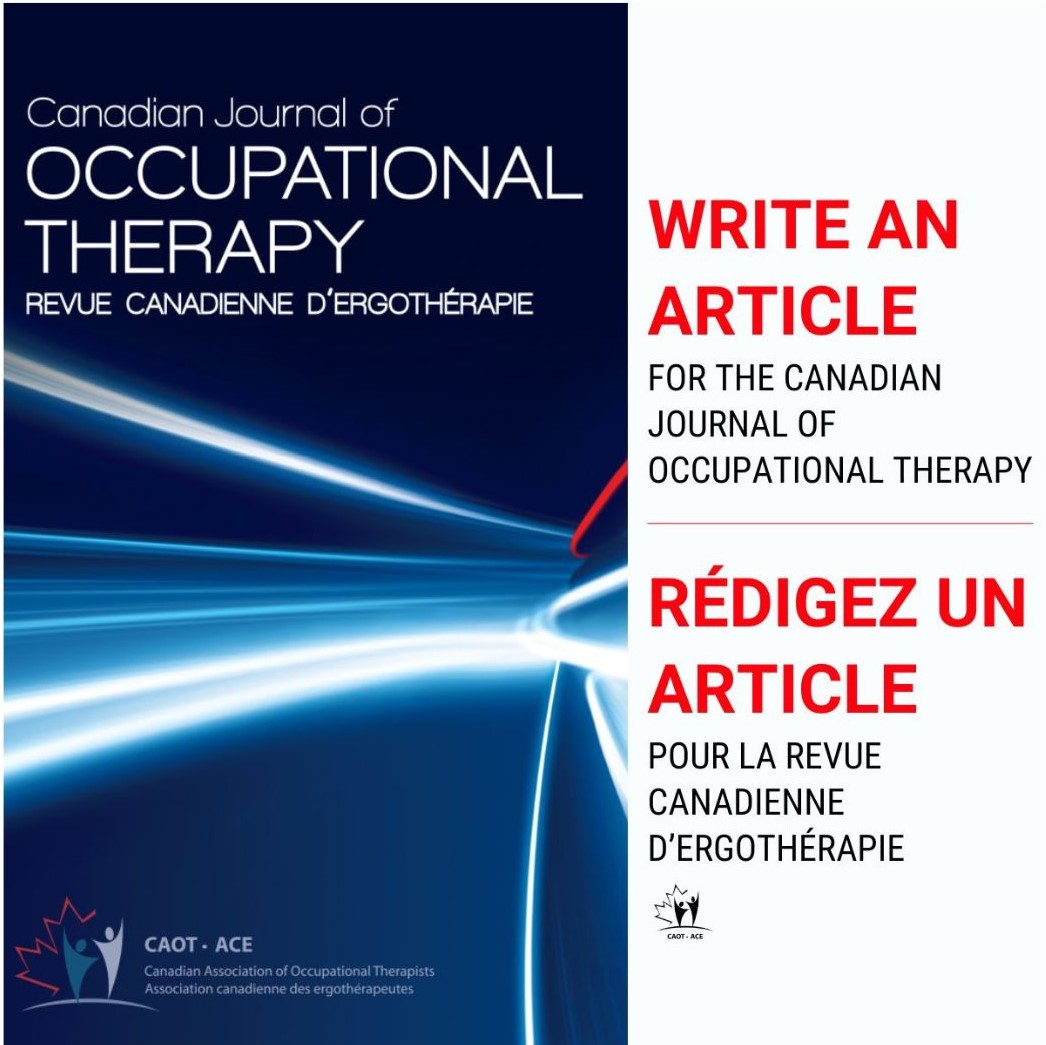
Consider contributing to the CJOT special issue on Lifestyle Redesign and Associated Interventions!
Papers (full-length research, brief research reports, non-research manuscripts) included in this special edition will examine Lifestyle Redesign and associated interventions, including their influence on occupational participation and occupational therapy practice. Possible topics in the thematic selection include:
- Influence of Lifestyle Redesign and associated interventions
- Lifestyle Redesign and diversity
- The practice of Lifestyle Redesign
- Teaching and learning in Lifestyle Redesign
For more information about this opportunity to contribute to Lifestyle Redesign literature, visit the CJOT website.
Remodeler sa vie (French-Canadian Lifestyle Redesign®): Science, sharing and reflection
Free Webinar | Rescheduled to Tuesday, March 25, 2025
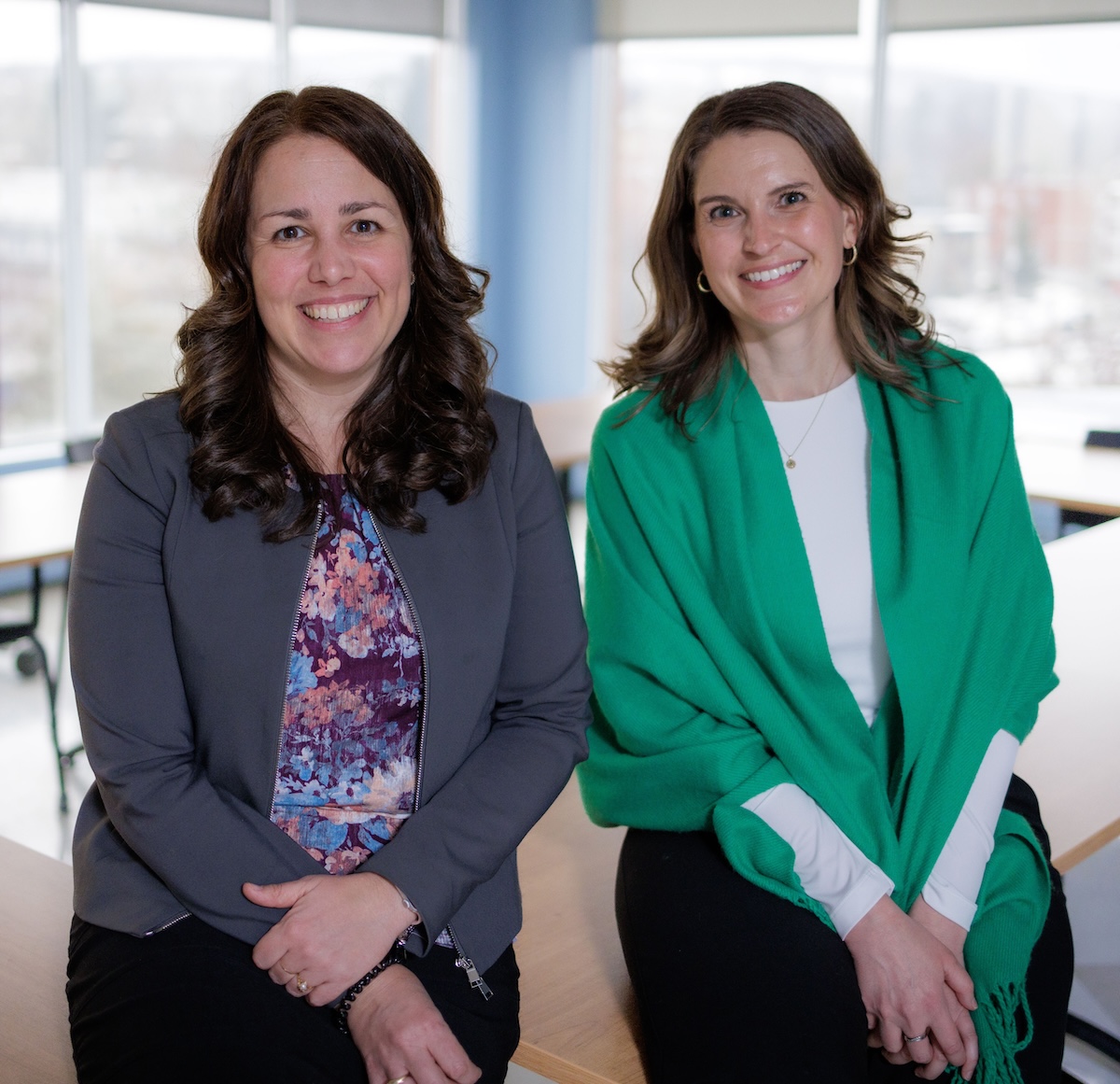
Dr. Mélanie Levasseur and Marie-Hélène Lévesque
This webinar will provide an overview of the clinical and scientific advances related to Remodeler sa vie, the French-Canadian adaptation of the Lifestyle Redesign intervention framework, as well as discuss practical benefits, challenges, and next steps for its integration into practice. The presentation will cover the historical development of Remodeler sa vie, as well as findings from studies conducted to date, including a systematic review, a feasibility study, a pre-implementation study, a realistic evaluation, and various pilot studies. The speakers will showcase how this cultural adaptation is influencing research and practice in Canada and elsewhere in the world. This webinar will provide an opportunity for cross-cultural exchange that could benefit the collective development of preventive, strategic and scientifically-based solutions to promote health and well-being of Canadian, American and global populations.
Date: Tuesday, March 25, 2025
Time: 12–1pm Pacific Time
Location: Zoom
Audience: This is an introductory level activity designed for OT practitioners, however, all levels of experience and disciplines are welcome.
Cost: This webinar is offered at no cost. Registration is required to join the webinar.
About the Speakers: Dr. Mélanie Levasseur & Marie-Hélène Lévesque
Empowering Change: A Training for Occupational Therapy Practitioners in Motivational Interviewing
Interactive Course | May 9, 2025 through May 11, 2025

Back by popular demand: Dr. Jesús Díaz will be offering this motivational interviewing (MI) training again, this Spring!
This is a live, interactive course in which participants will apply MI principles through role-playing. This is designed to be a supportive learning environment where participants will be actively engaged in practicing MI skills. While this course is designed to be applied to OT practice, the content covered can be applicable to any population; therefore, all disciplines are welcome.
This is a 12-hour course held across 3 days (4 hours per day). Participants are expected to fully participate for the entire course.
Dates/Times (Pacific Time):
- Friday, May 9, 2025, 1–5pm
- Saturday, May 10, 2025, 8am–12pm
- Sunday, May 11, 2025, 8am–12pm
Location: Zoom
Cost:
- Standard: US$250
- AOTA Members and USC Chan Alumni: $225
CEUs: 12 contact hours (1.2 CEU)
Note: This course satisfies the 12-hour MI training requirement for obtaining Lifestyle Redesign Certification.
New On-Demand Learning Opportunity
December 2025 Webinar — 12 Years of Lifestyle Redesign® at Rancho Los Amigos National Rehabilitation Medical Center
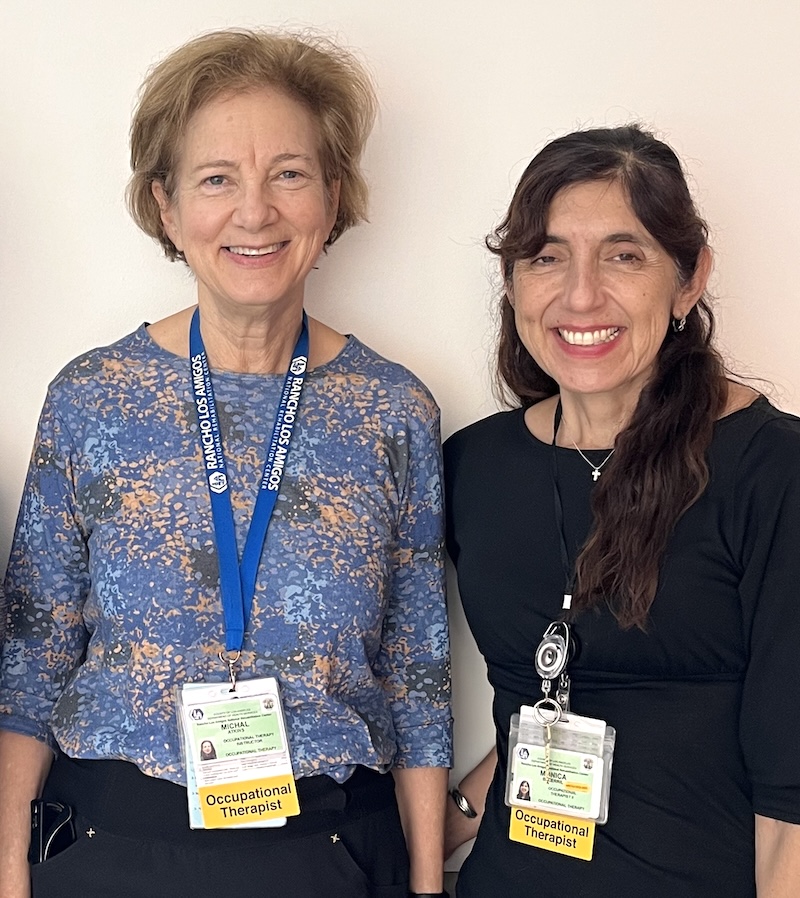
Michal Atkins and Monica Becerril
The Lifestyle Redesign Webinar Series live events are recorded and made available for on-demand viewing shortly thereafter, for a nominal fee. Upon purchasing access to the on-demand webinar, there is a 30-day window to view the webinar recording and submit post-webinar surveys to receive continuing education credit.
CEUs: 1 contact hour (0.1 CEU)
Cost:
- Standard: US$30
- AOTA Members and USC Chan Alumni: $27
For more information about this on-demand webinar or general information about accessing on-demand webinars and claiming CEU credit, visit the On-Demand Learning page.
Certification Section
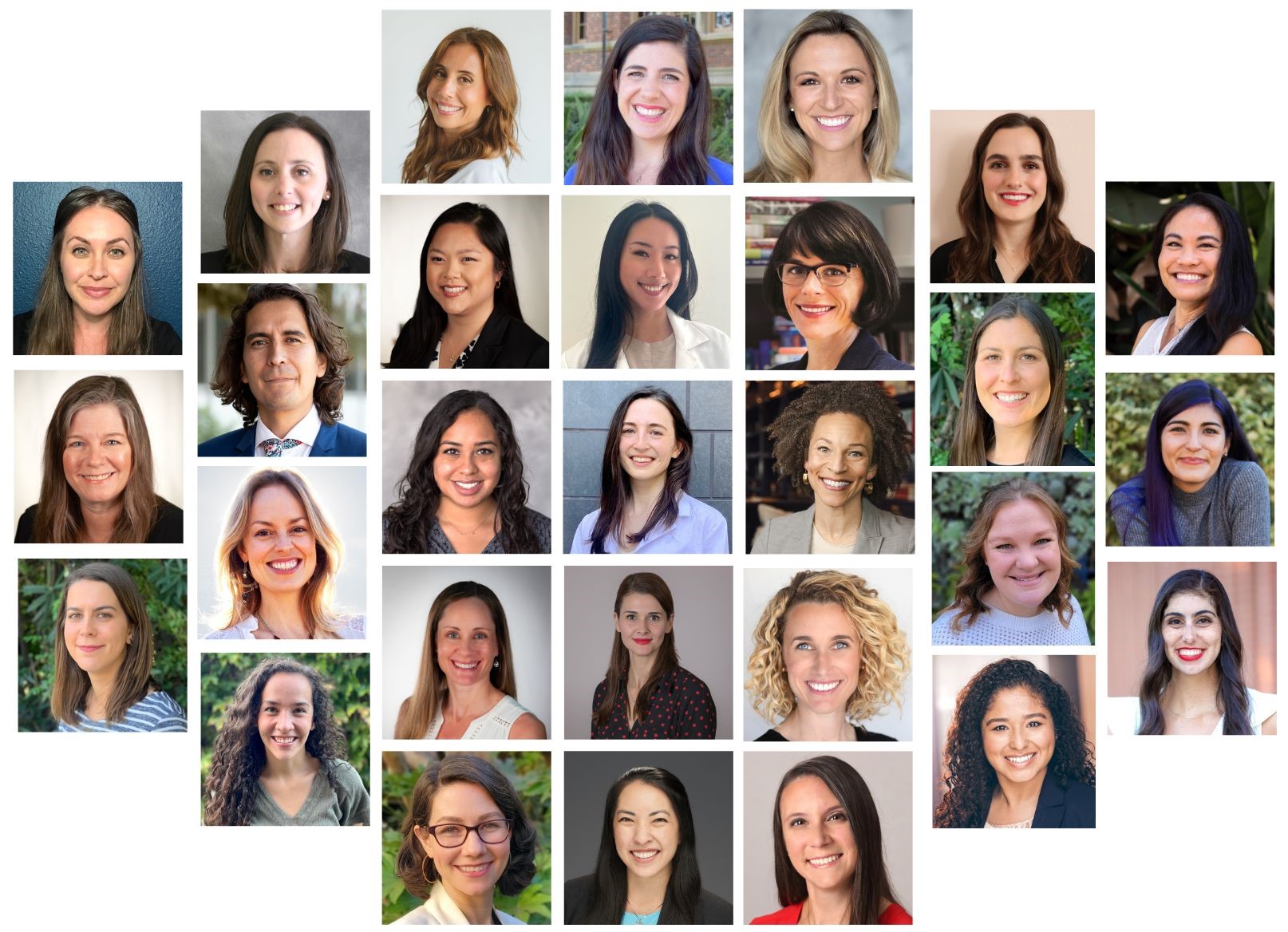
Pictured from left to right, by column: 1st: Melina Allahverdian, Jeanine Blanchard, Erin Bussell; 2nd: Rebecca Cunningham, Jesús Díaz, Camille Dieterle, Nora Dixon; 3rd: Stephanie Esgro, Kayla Gan, Gabby Granados, Virginia (Ginny) Green, Ashley Halle; 4th: Tracy Jalaba, Kelly Liao, Anna Lynch, Marissa Marchioni, Rashelle Nagata; 5th: Kristy Payne, Beth Pyatak, Carlin Reaume, Chantelle Rice Collins, Stacey Schepens Niemiec; 6th: Emma Schiewe, Lindsey Shomer, Hilary Stanek, Marilyn Thompson; 7th: Ashley Uyeshiro Simon, Samantha Valasek, Katherine Wechsler
Congrats LRC OTPs!
In December 2024, 49 occupational therapists joined the inaugural cohort of Lifestyle Redesign Certified (LRC) practitioners!
Melina Allahverdian
OTD, OTR/L, LRC
Michal Atkins
OTR/L, LRC
Monica Becerril
OTR/L, LRC
Jeanine Blanchard
PhD, OTR/L, DipACLM, LRC
Erin Bussell
OTD, OTR/L, LRC
Alyssa Capellino Baxter
OTD, OTR/L, ECHM, LRC
Jessica Choi
OTR/L, LRC
Rebecca Cunningham
OTD, OTR/L, MSCS, LRC
Jesús Díaz
OTD, OTR/L, LRC
Camille Dieterle
OTD, OTR/L, LRC
Nora Dixon
OTD, OTR/L, LRC
Stephanie Esgro
OTR/L, LRC
Kayla Gan
OTD, OTR/L, LRC
April Gayoso
OTR/L, LRC
Gabby Granados
OTD, OTR/L, LRC
Virginia (Ginny) Green
OTD, OTR/L, LRC
Ashley Halle
OTD,OTR/L, CAPS, LRC
Tracy Jalaba
OTD, OTR/L, LRC
Carli Jimenez
OTD, OTR/L, LRC
Kelcie Kadowaki
OTD, OTR/L, LRC
Kelly Liao
OTD, OTR/L, LRC
Danielle Lombardi
OTD, OTR/L, CPAM, LRC
Anna Lynch
OTD, OTR/L, LRC
Susan MacDermott
OTD, OTR/L, LRC
Hannah Mai
OTR/L, LRC
Marissa Marchioni
OTR/L, OTD, CEAS, LRC
Karen McCarthy
OTD, OTR/L, LRC
Kristin McConnell
OTD, OTR/L, LRC
Vanessa Miller
OTD, OTR/L, LRC
Rashelle Nagata
OTR/L, LRC
Hanlon Newhall
OTD, OTR/L, LRC
Daniel Padilla Vega
OTD, OTR/L, LRC
Kristy Payne
OTD, OTR/L, LRC
Tran Pham
OTD, OTR/L, LRC
Beth Pyatak
PhD, OTR/L, LRC
Carlin Reaume
OTD, OTR/L, LRC
Chantelle Rice Collins
OTD, OTR/L, LRC
Erin Malia Sako
OTD, OTR/L, LRC
Stacey Schepens Niemiec
PhD, OTR/L, LRC
Emma Schiewe
OTD, OTR/L, TTS, LRC
Lindsey Shomer
OTD, OTR/L, LRC
Hilary Stanek
OTD, OTR/L, LRC
Reena Takamura
OTD, OTR/L, LRC
Marilyn Thompson
OTD, OTR/L, LRC
Ashley Uyeshiro Simon
OTD, OTR/L, LRC
Samantha Valasek
OTD, OTR/L, ADHD-RSP, LRC
Katherine Wechsler
OTD, OTR/L, LRC
Grace Wong
OTD, OTR/L, LRC
Stephanie Yang
OTR/L, LRC
LRC Info Session
Join us for the first Lifestyle Redesign Certification information session of the year! This will be held on Monday, February 3, 2025 @ 3pm PST and is an opportunity to learn about the certification process and get your questions answered!
Information sessions are live, online events, hosted via Zoom:
- Topic: Lifestyle Redesign® Certification Information Sessions
- usc.zoom.us/j/94343068918
- Meeting ID: 943 4306 8918
For full Zoom meeting details and future info session dates/times, check out our calendar by visiting the Upcoming Events page. In the meantime, consider checking out the resources on the Certification page.
Next LRC Exam Window
Have you fulfilled your education and experience requirements for initial Lifestyle Redesign Certification? If your answer is “yes” (or will be soon), consider marking the next Lifestyle Redesign certification (LRC) examination window in your calendar: April 1, 2025 through May 15, 2025
The LRC exam is a three-hour, online proctored exam consisting of 100 multiple-choice questions designed to evaluate clinical reasoning and application of Lifestyle Redesign principles to specific clinical scenarios. The exam will be offered twice annually, in the spring and fall.
For more information about applying for eligibility to take the LRC exam, visit Section 3.2 of the Certification Handbook.
Take this final step to earn your LRC from the comfort of your home!
Course Series Corner
For those currently enrolled in the Course Series:
Registration for Core Course 3: Lifestyle Redesign Program Development is open!
Course Start: Monday, April 14, 2025
CEUs: 0.6
For those thinking about enrolling in the Course Series:
Each course in the Course Series is offered once annually, beginning with Core Course 1, which is the prerequisite for all subsequent courses The next offering of Core Course 1 will start in September 2025. Registration will open in May 2025; sign up to be notified when Core Course 1 registration opens.







